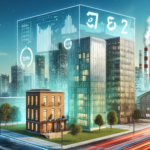AI in agriculture is revolutionizing the way we approach farming and food production. This cutting-edge technology is addressing global food security challenges by optimizing crop cultivation, improving supply chain efficiency, and reducing food waste. With AI, we can ensure a sustainable and resilient future for agriculture, making it possible to meet the growing demands of our population.
Understanding Global Food Security
Global food security is a multifaceted issue involving the availability, accessibility, utilization, and stability of food. Challenges include increasing populations, climate change, and limited resources. To ensure food security, we need to enhance agricultural productivity and resilience through innovative technologies like AI.
Role of AI in Agriculture
AI Models in Agriculture
AI models like machine learning and predictive analytics are transforming agriculture. These models analyze large datasets, including weather patterns, soil conditions, and crop performance, to provide valuable insights. For example, supervised learning models help in crop and soil management by predicting yields and optimizing resource allocation.
Application of AI in Crop Breeding
AI accelerates the development of improved cultivars by using genomic selection and phenomics analysis. This technology helps identify desirable traits, such as disease resistance and stress tolerance, faster and more accurately than traditional methods. AI-driven breeding techniques also enhance the nutritional content of crops, addressing malnutrition issues.
AI in Disease Identification and Pest Management
AI algorithms utilize data from sensors, drones, and satellites to detect diseases and pests early. By analyzing images and environmental data, AI can identify patterns and anomalies, allowing for timely interventions. This reduces the reliance on pesticides and improves crop health.
Sustainable Water-Resource Management
Water scarcity is a significant challenge in agriculture. AI optimizes water management by analyzing real-time data on soil moisture and weather conditions. Precision irrigation systems use AI to deliver the right amount of water at the right time, reducing waste and enhancing crop productivity.
Improving Supply Chain Efficiency
AI improves the efficiency of the food supply chain by optimizing inventory management, transportation, and distribution. Predictive analytics help in demand forecasting, reducing food waste and ensuring timely delivery. AI-powered systems also enhance food safety through continuous monitoring and traceability.
Addressing Food Loss and Waste
AI reduces post-harvest losses by monitoring storage conditions and predicting shelf life. By analyzing data on temperature, humidity, and product quality, AI ensures optimal storage and distribution, minimizing spoilage and waste. Smart inventory management systems further enhance efficiency and resource utilization.
Challenges and Future Prospects
The integration of AI in agriculture presents ethical, social, and economic challenges. Ensuring data privacy, equitable access to AI technologies, and addressing labor displacement are critical. Despite these challenges, AI holds immense potential for advancing food security. Future trends include the integration of AI with other technologies like IoT and blockchain, enhancing precision farming, and improving supply chain transparency.
Conclusion
AI is a powerful tool for transforming agriculture and addressing global food security challenges. By optimizing agricultural practices, enhancing supply chain efficiency, and reducing food waste, AI contributes to a sustainable and resilient food system. Ongoing research, collaboration, and ethical considerations are essential to harness the full potential of AI in agriculture.
Original Source- https://www.sciencedirect.com/science/article/pii/S2589721724000151
